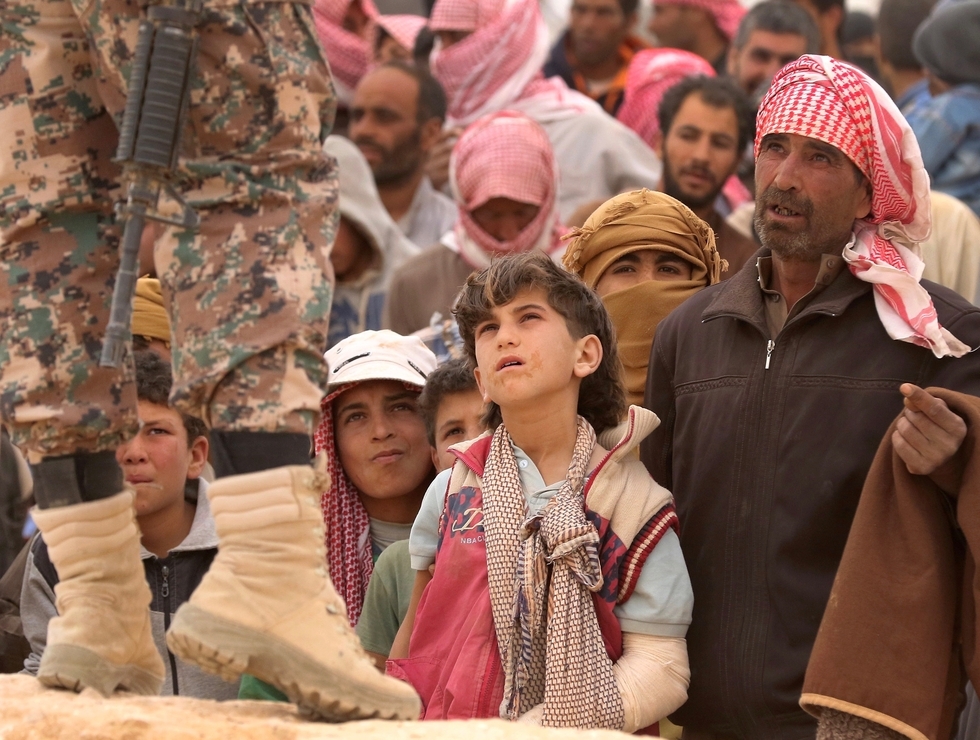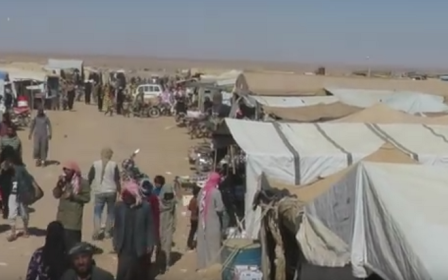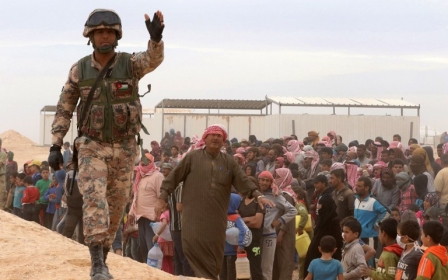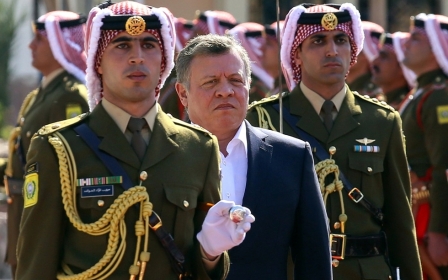Syria's war-wounded turned away from Jordan border amid security fears

AMMAN - Jordan is refusing to admit injured fighters and civilians from Syria after closing its border in response to last month's suicide attack near a refugee camp that killed seven Jordanian soldiers.
The policy led to the death of a wounded 10-year-old Syrian boy after he was refused treatment in late June, while injured fighters have been heading to the Golan Heights to try and enter Israel, which has treated over 3,000 Syrians over the last three years.
Doctors Without Borders said it admitted its last patient on 21 June, the day of the attack near Ruqban. Since then, others have arrived at the border seeking treatment but been turned away.
The charity, known as MSF, said the decision has affected years of work at Jordan's Ramtha hospital, five kilometres from the border, where more than 1,000 Syrian patients have been treated for war wounds in a joint project with Jordan’s government.
“Since our last patient arrived on 21 June, other injured people have tried to enter Jordan in need of urgent medical care, but were denied access as a result of this blanket decision to close the border,” MSF’s Middle East Unit Anne Garella told Middle East Eye.
As a result, MSF said, a new 40-bed emergency trauma ward at Ramtha is only half full. The 16 people in its beds are receiving long-term inpatient care and follow up. The emergency intervention cases for which the ward was designed, the life-or-death injuries where moments matter, are stuck on the other side of a sealed border.
In Ramtha, operating theatres sit empty while specialised volunteer surgeons from around the globe wait, killing time even as the sound of explosions in southern Syria rumbles over the border.
“With recent bombings in southern Syria, knowing there are complex injuries and people are not being evacuated, we could do more,” said Garella. “We could do so much more.”
Many of those turned away by Jordan are forced to head to Damascus for treatment, according to sources in Syria and Jordan.
A wounded 10-year-old boy died after trying to enter Jordan on 26 June. He arrived at a Royal Medical Society facility about 400m inside Syria, which is manned by Jordanians, but he was turned away and died a day later on the checkpoint-choked road to the Syrian capital.
Other male patients head west to the border fence in the Golan Heights, in hopes of admission to Israel, which has treated 3,000 war-wounded Syrians in three years.
The treatment, funded by the federal government of Israel, has been described by some as a soft-power initiative.
Israeli government sources said there has been no marked rise in hospital admissions through the Golan, but this is likely due to a drop in fighting in nearby Quneitra, with war-wounded from further south making up the numbers.
This article is available in French on Middle East Eye French edition.
New MEE newsletter: Jerusalem Dispatch
Sign up to get the latest insights and analysis on Israel-Palestine, alongside Turkey Unpacked and other MEE newsletters
Middle East Eye delivers independent and unrivalled coverage and analysis of the Middle East, North Africa and beyond. To learn more about republishing this content and the associated fees, please fill out this form. More about MEE can be found here.




